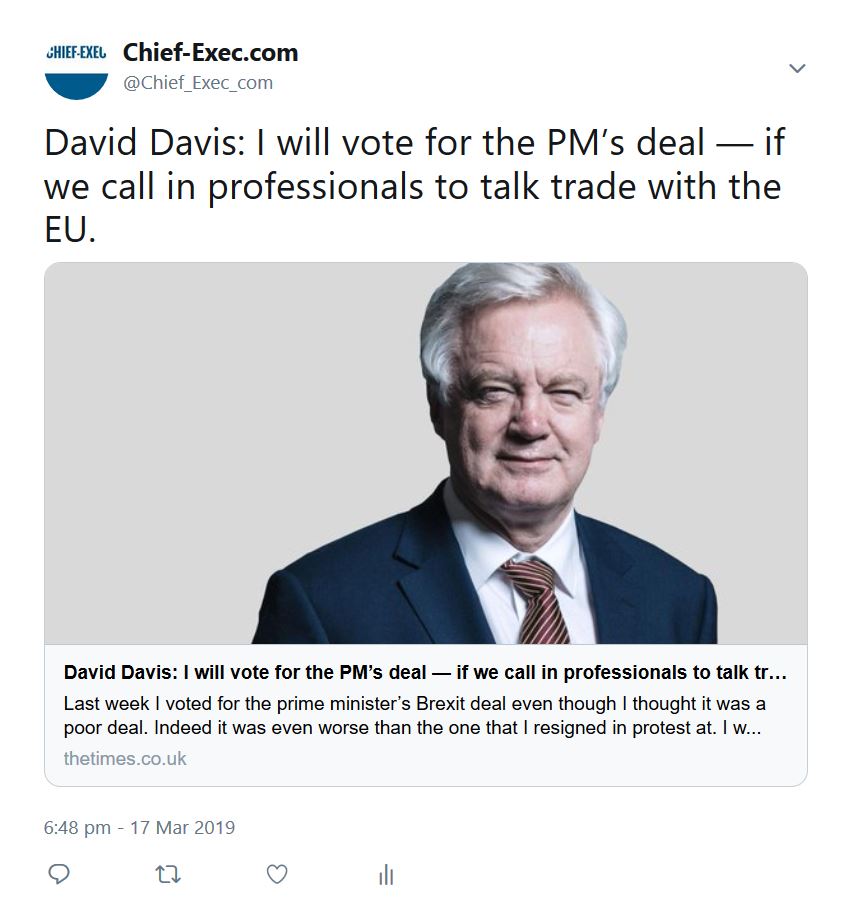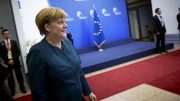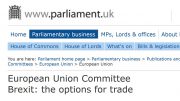The empty space that sits where detailed, comprehensive and forward-looking planning for British post-Brexit trade should be set out is arguably the most perplexing example of why the Brexit debate has been so scandalously shallow throughout, writes Geoff Kitney.
I was once offered the chance to be trade policy roundsman for a newspaper on which I worked. I thought there was a message in this – that maybe it was time to think about a career outside journalism.
“Trade policy” are two words which are bound to have the immediate effect on a listener of wanting to change the subject. Trade – especially trade negotiations and diplomacy – is a specialty area of international relations which compels anyone interested in trying to understand it to learn a new language.
As such, it is an issue on which it is very easy to pull the wool over the eyes of anyone who cannot understand that language.
And it is an issue on which anyone with evil intent can pretend to understand and easily fool those who do not. This is exactly what has happened with Brexit.
A recent poll found that 44 per cent of British voters questioned by the pollster said they were OK with the UK crashing out of the European Union without a deal. Without a deal means without any arrangement for what happens to Britain’s trading relationship with the EU – or with any other country in place of the European Union.
From the outset, Brexit has been an historic gamble by Britain with its future.
Either those voters understand the issues but consider regaining the UK’s “freedom” as so fundamentally important they are prepared to pay the cost of “freedom” in economic damage caused by long-term disruption to British trade.
Or those voters clearly feel reassured by Brexit leaders that they have no need to worry about what happens if there is a no deal Brexit.
As far back as before David Cameron succumbed to internal pressure in the Conservative Party to conduct a referendum on Britain’s future relationship with the EU, Brexiters were arguing that trade policy would be a breeze for post no deal Britain.
(3/4) Within minutes of a vote for #Brexit CEO’s would be knocking down Chancellor Merkel’s door. Demanding access to the British market
— David Davis (@DavidDavisMP) February 4, 2016
Britain was a great trading nation, they argued. Non-EU trade was growing faster than trade with the EU. Members of the Commonwealth – particularly Canada, Australia, New Zealand and India – would be willing to agree to trade deals on favourable terms with Britain and, of course, there was President Trump’s USA ready to do its bit to give the terrible European Union a good kick in the guts to help Britain.
At no point were these assertions properly tested.
Some trade policy specialists did analyse them closely and concluded that, in fact, post-Brexit free trade agreements would be very difficult to negotiate and could not possibly, in the foreseeable future, replace the favourable trade arrangements that Britain already had with the EU.
But trade specialists talked in incomprehensible jargon which was so full of “ifs” and “buts” and “maybes” that no-one could be bothered taking any notice of them.
In fact, non-trade specialist Brexiters cast the European Union as a protectionist, closed trading bloc which strangled Britain’s ability to be the great trading nation of past and its potential future.
It suited the narrative which was that Britain’s membership of the EU “super-state” had stunted its greatness and straight-jacketed its great industries to such an extent that only quitting the EU, the single market and the customs union made sense.
But, if this was such a clear cut and obvious choice for Britain to make, why was so little evidence produced by the May Government to persuade its recalcitrant ‘Remoaners’ to abandon their cause and vote in favour of Britain’s future out of the clutches of the EU?
At no point in the two years of struggle by the government to build a clear majority for its strategy for leaving the EU has a clear, post-Brexit trade policy, with a clear, credible strategy for securing post-EU global trading relationships which would replace Britain’s existing trade relationship within the EU been set out.
The only detail that has been forthcoming was the announcement that, in the event of a no-deal Brexit, the UK government would apply zero tariffs for one year on imports into the UK with exceptions for some products such as beef and ceramics, which would still get some protection.
To avoid a hard border with Northern Ireland, those remaining special tariffs would not apply across the Northern Ireland border – a move which trade experts say would almost certainly be in breach of World Trade Organization rules.
This announcement had nothing to do with trade policy per se.
It was simply an emergency response to the threat that, if it fell out of the EU, Britain would have to adopt WTO default tariff rates which would cost UK consumers billions of pounds in higher prices for imported goods
This was a policy announced in a panic as the risk of no deal increased. Beyond that the May government has provided zero guidance for UK business about what its tariff policies will be in the future.
Brexiters have talked airily of how it will simply be a matter of cutting tariffs below existing tariff rates applied by the EU and trade flows will gush Britain’s way.
They have not addressed or acknowledged the fact that anything that results in the UK having its own trade deals outside the EU would require the UK to renegotiate every trade agreement to which it is currently a partner as a result of its EU membership, a nightmare prospect for a country with virtually zero expertise in trade negotiations.
Trade – especially trade negotiations and diplomacy – is a specialty area of international relations which compels anyone interested in trying to understand it to learn a new language.
Liam Fox, Trade Secretary, has hinted that immediately it leaves the EU, Britain could reduce tariffs across the board to zero, an idea which trade specialists argue would be massively disruptive and destructive to vast swathes of British industry and especially to farmers.
Fox himself appears to have been happy to coast along towards Brexit with little concern for what happens in its aftermath. His passivity appears to be irresponsible in the face of the warnings from trade experts who, by the way, believe that Liam Fox simply doesn’t understand trade policy and therefore what the consequences of Brexit could be for British trade.
Fox’s ennui was the target of a strong attack by former Australian Labor Prime Minister Kevin Rudd in a recent article in which he described the idea that a Commonwealth trading block could in any sense be a better option for the UK than membership of the Single Market.
Rudd, writing in The Guardian, described it as “utter bollocks” and said of the idea that India would be ready to do a deal on favourable terms with the UK was fanciful.
He pointed out that Australia had failed to secure a free trade agreement (FTA) with India after 10 years of negotiations. “So, good luck with that,” he said.
Rudd was responding to calls from another former Australian Prime Minister, Tony Abbott – a conservative – for the UK to “be bold” and go for a “no deal” Brexit.
 The empty space that sits where detailed, comprehensive and forward-looking planning for British post-Brexit trade should be set out is arguably the most perplexing example of why the Brexit debate has been so scandalously shallow throughout.
The empty space that sits where detailed, comprehensive and forward-looking planning for British post-Brexit trade should be set out is arguably the most perplexing example of why the Brexit debate has been so scandalously shallow throughout.
From the outset, Brexit has been an historic gamble by Britain with its future.
Yet much of the argument in favour of taking that step has been put in the most generalised terms and most Pollyannaish language. Those who have warned about the complexities of trade policy have been brushed aside, either as making much out of things that there was no need to worry about or, more sinisterly, as being guilty of exaggeration and lies intended to thwart the will of the British people.
But the will of the British people could only be honestly and properly understood when it is informed by facts and sober analysis. No such thing has come from the Brexit side.
Because trade is the issue which will most determine Britain’s fate outside the EU – and because voters have been kept so ignorant of the post-Brexit risks a bungled trade strategy would pose – on this issue alone Article 50 should be delayed to allow time for a properly informed debate to take place.

Headline image credit: Ralf Gosch/Shutterstock.com




